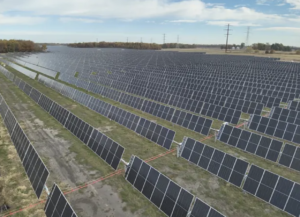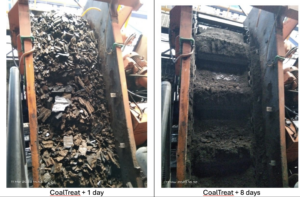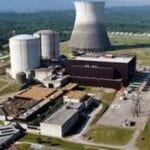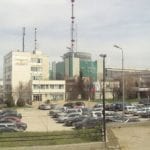Officials from Russia and Egypt marked another milestone in construction of the latter’s first nuclear power plant, with a ceremony Nov. 19 to announce pouring of the “first concrete” for Unit 2 of the El-Dabaa Nuclear Power Plant (NPP).
Saturday’s event came three weeks after a construction permit was issued for that unit by the Egyptian Nuclear and Radiological Regulatory Authority. Construction of Unit 1 at El-Dabaa began in July of this year. Dr. Mohamed Shaker El-Markabi, Egypt’s minister of Electricity and Renewable Energy, said Saturday, “We are keen that the construction works go according to schedule and without any delays. I would like to state that the Egyptian-Russian team that is in charge of implementing the Dabaa project has shown the highest levels of professionalism and so it is expected that we finalize this project long ahead of schedule.”
The El-Dabaa plant is sited in El-Dabaa, Matrouh Governorate, on the Mediterranean coast, about 186 miles northwest of Cairo. Industry analysts have estimated the plant’s expected cost at between $25 billion and $30 billion, funded by Russia and also private investors.
Rosatom Avoids Sanctions
Rosatom, among the world’s leading nuclear power technology companies, has thus far avoided sanctions levied against other Russian-owned entities in the wake of Russia’s invasion of Ukraine earlier this year. The company, among its many projects in multiple countries, also is building the first nuclear power plant in Bangladesh, providing an estimated $12.65 billion for construction of a four-unit plant at Rooppur.
The Russian group also is building Turkey’s first nuclear power plant, the four-unit Akkuyu facility. The first unit at Akkuyu could come online next year; the plant is expected to be fully operational within the next few years.

The El-Dabaa project, like the plants in Bangladesh and Turkey, will utilize four Generation III+ VVER-1200 pressurized water reactors, each with 1,200 MW of generation capacity. Rosatom in an email to POWER on Nov. 20 said there are four operating VVER-1200 reactors in Russia, with two each at the Novovoronezh and Leningrad nuclear power plants. One VVER-1200 reactor is in service outside Russia; that unit at the Ostrovets plant in Belarus was connected to the power grid in November 2020. Rosatom in its email said its engineering division “ranks first in the world by the order portfolio and the number of NPPs constructed simultaneously across the world,” with about 80% of the division revenues originating from projects outside Russia.
Unit 1 at El-Dabaa is expected to enter service in 2028. All four reactors are expected to be operational by the end of this decade.
“The Egyptian-Russian team is demonstrating the highest levels of professional excellence, and is achieving key milestones for the El-Dabaa Nuclear Power Plant Project well ahead of schedule,” said Shaker El-Markabi in his welcoming address at Saturday’s event. “It is symbolic that an event as important as the pouring of the first concrete for the foundation plate of Unit 2 of the El-Dabaa Nuclear Power Plant coincides with the birthday of H.E. Abdel Fattah El Sisi, the president of Egypt, who is the driving force behind the El-Dabaa Nuclear Power Plant project and many other mega-projects currently being implemented in Egypt. I am confident that the El-Dabaa Nuclear Power Plant project will have a significant impact on the lives of all Egyptians, and will also allow Egypt to take its place amongst other regional leaders in the nuclear industry.”
Project Development
Russia and Egypt signed contracts for construction of El-Dabaa’s four nuclear reactors during a visit by Russian President Vladimir Putin to Cairo in the summer of 2015. The contracts entered force in December 2017. Rosatom officials have said Russia will supply nuclear fuel for the plant “for its entire lifecycle, provide assistance to the Egyptian Party in personnel training, and provide support in the operation and servicing of the Nuclear Power Plant for the first 10 years of its operation. The Russian party will also build a special storage facility and deliver casks for storing spent nuclear fuel.”
Saturday’s ceremony included officials from Rosatom and the Egyptian government. Alexey Likhachev, Rosatom’s director general, said, “The construction of the El-Dabaa NPP Unit 2 speaks to the fact that the project is gaining pace. Rosatom continues its active work abroad: we are building 34 power units in 11 countries.”
Likhachev said the El-Dabaa project “has a special importance for us as El-Dabaa will become the first nuclear power plant on the African continent built using the Russian technology. This is the largest project of Russian-Egyptian cooperation since the time of the Aswan Dam construction. The NPP start-up will play a crucial role in the social, economic and technological life of Egypt and will give momentum to a gradual transition of the country’s industry and economy to low-carbon sources of energy. This will create a strong foundation for reliable and sustainable development in Egypt for decades to come. I congratulate our Egyptian colleagues and partners on achieving this important milestone!”
‘Major Achievement’
Amged El-Wakeel, board chairman for Egypt’s Nuclear Power Plants Authority, said, “The commencement of the main construction phase for Units 1 and 2 this year is a major achievement for the El-Dabaa Nuclear Power Plant project, and demonstrates the level of support that the project has received from the leadership of both of our countries. I must take this opportunity on behalf of the NPPA to express my deepest appreciation to our Russian partners for their support in the implementation of this historic project. What we have achieved together is a true reflection of our fruitful cooperation. I am also excited by the progress Egypt has made in establishing itself as a regional leader in the field of peaceful uses of nuclear energy, which I firmly believe can be of great benefit to the Middle East and North Africa as a whole.”
Alexander Korchagin, senior vice president for NPP Project Management of ASE JSC, the engineering division of Rosatom, said, “In July 2022, the El-Dabaa Nuclear Power Plant project witnessed an important milestone, the pouring of first concrete for Unit 1. Today we have taken another significant step forward, with the commencement of the main construction phase for Unit 2. The well-coordinated joint work of the NPPA and ASE JSC has allowed us to achieve outstanding progress in the implementation of the El-Dabaa Nuclear Power Plant project.”
A recent report from Columbia University’s Center on Global Energy Policy notes that Russia, led by Rosatom, is among the world’s largest exporters of nuclear reactors. The report said that of 439 nuclear power reactors operating worldwide last year, 80 were either sited in Russia, or were Russian-designed VVER technology located in other countries.
—Darrell Proctor is a senior associate editor for POWER (@POWERmagazine).










